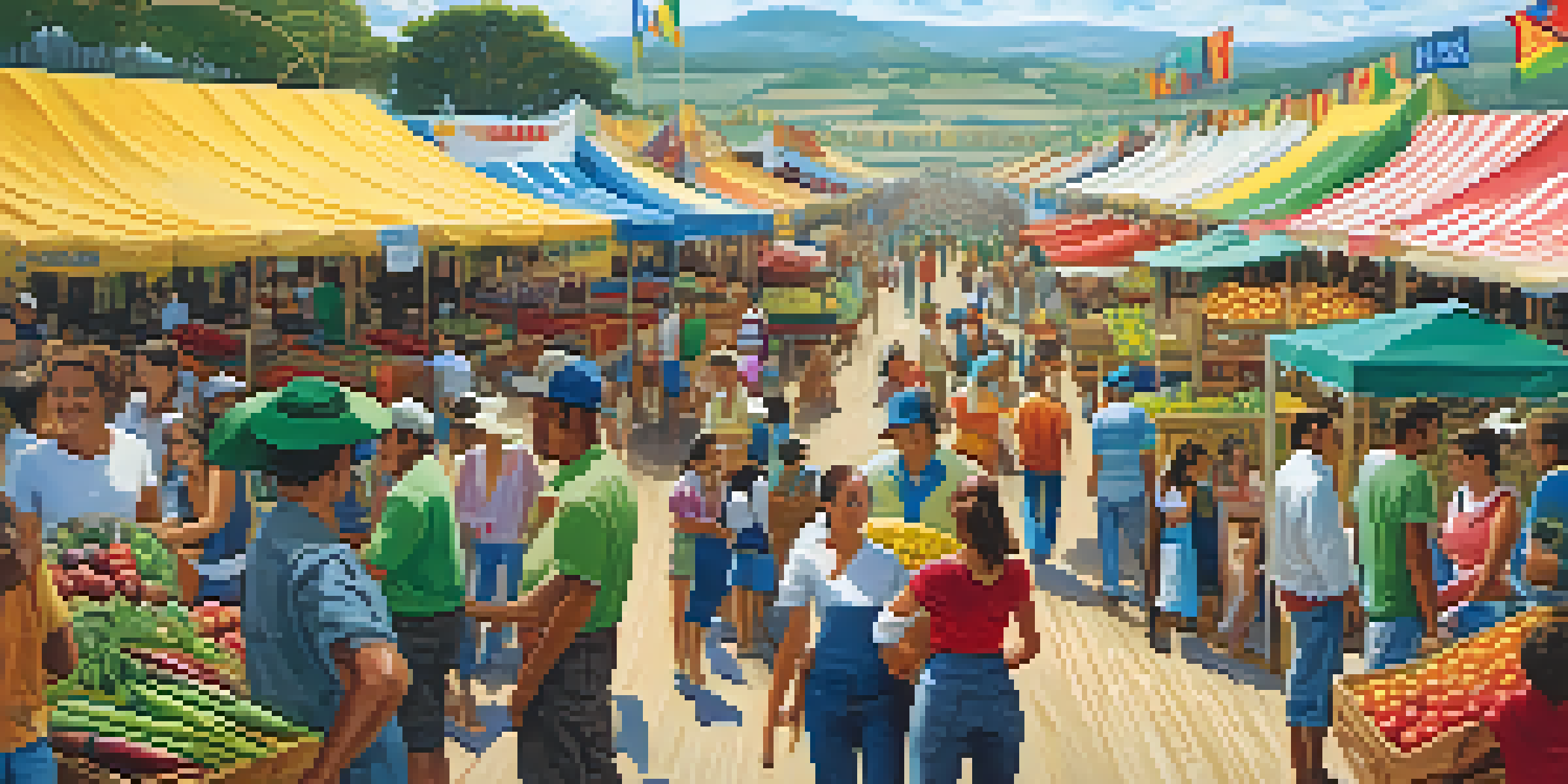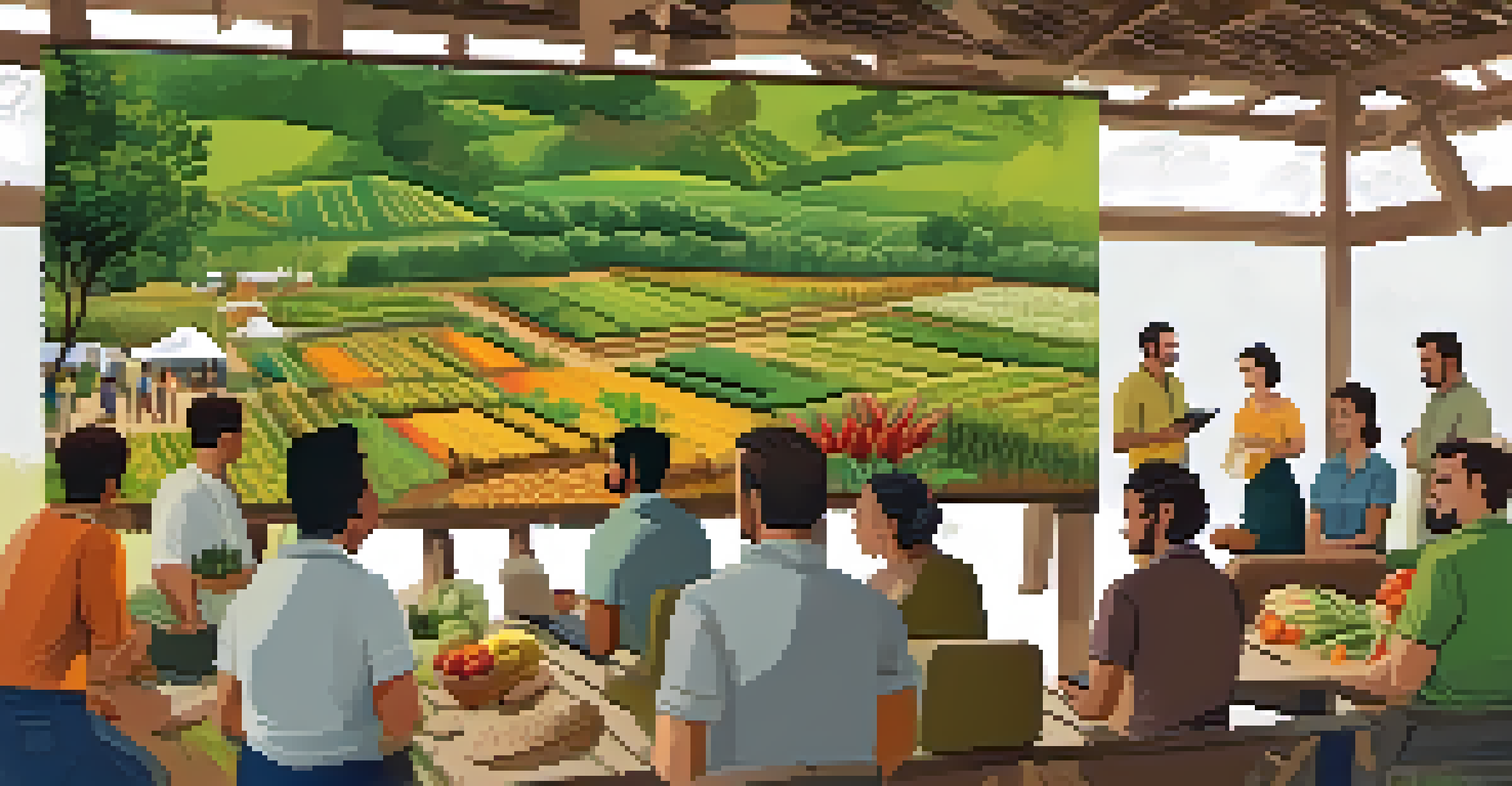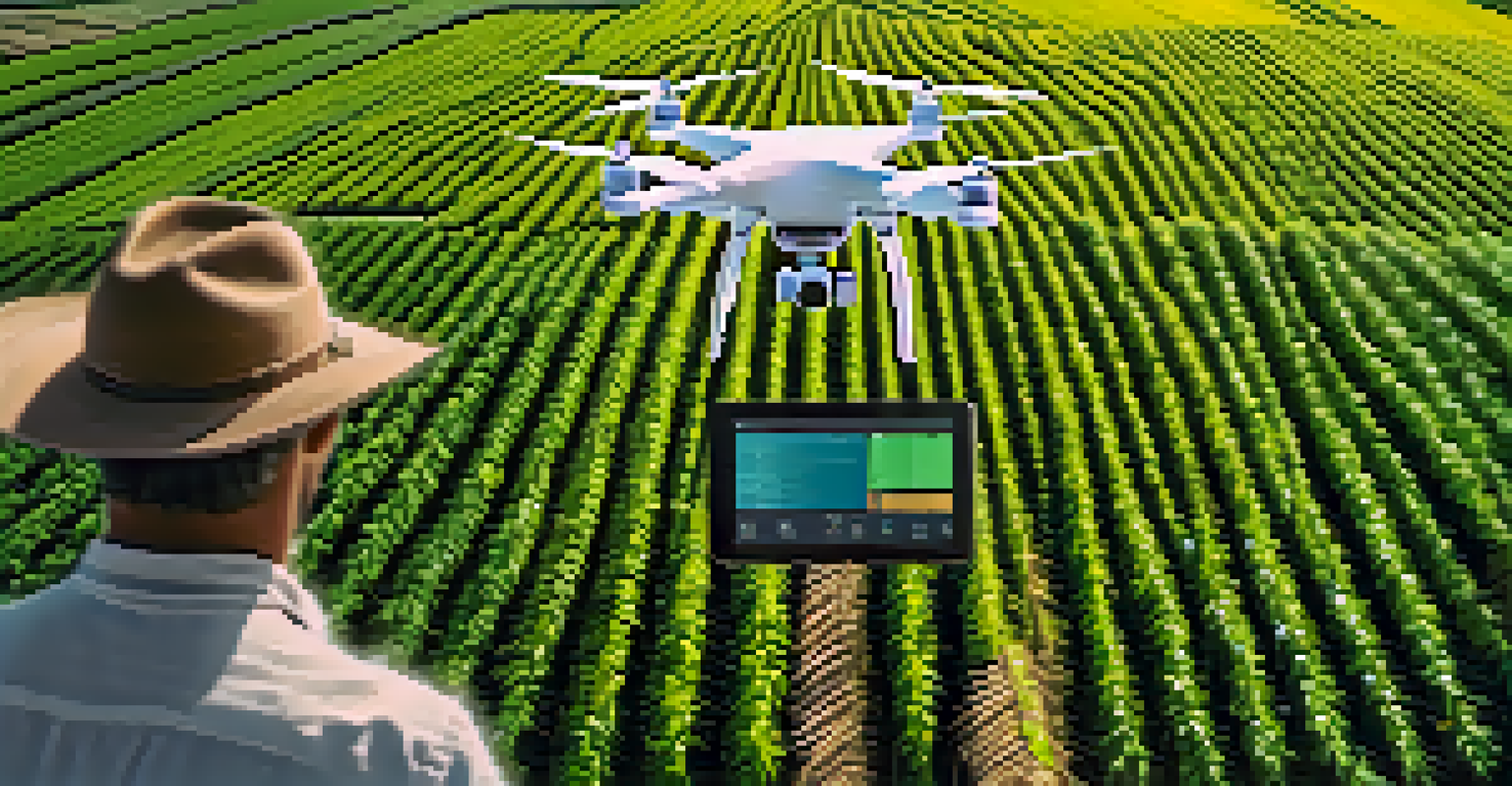Agricultural Innovations Showcased at Brazilian Fairs

The Role of Brazilian Agricultural Fairs in Innovation
Brazilian agricultural fairs serve as vibrant platforms for showcasing the latest innovations in farming. These events gather farmers, researchers, and entrepreneurs under one roof, fostering collaboration and idea exchange. With the nation’s agriculture being a crucial part of its economy, these fairs play a significant role in driving advancements.
The farmer is the one who feeds us all, and their success is vital for our future.
Attendees are often treated to exhibitions featuring cutting-edge technologies, from advanced machinery to sustainable practices. For example, last year’s fair highlighted innovations like precision agriculture tools that optimize crop yields while minimizing resource waste. This collective effort not only showcases Brazil's agricultural prowess but also encourages global partnerships.
Moreover, these fairs often include workshops and seminars that educate participants on new trends and techniques. By engaging with experts in the field, farmers can gain insights into implementing these innovations on their own farms, thereby improving productivity and sustainability.
Sustainable Farming Practices on Display
Sustainability has taken center stage at Brazilian agricultural fairs, reflecting a global shift towards eco-friendly practices. Exhibitors showcase a variety of sustainable farming techniques that reduce environmental impact while enhancing productivity. This includes organic farming methods, crop rotation, and agroforestry systems.

For instance, many farms are now integrating cover cropping to improve soil health and reduce erosion. Demonstrations at the fairs illustrate how these practices can lead to better yields and healthier ecosystems. By adopting these methods, farmers not only contribute to environmental conservation but also ensure the longevity of their agricultural practices.
Fairs Showcase Agricultural Innovation
Brazilian agricultural fairs provide a platform for farmers and researchers to share cutting-edge technologies and sustainable practices.
Additionally, the fairs facilitate discussions on the importance of biodiversity and the role it plays in sustainable agriculture. By understanding the relationship between diverse crops and soil health, farmers can make informed decisions that benefit both their livelihoods and the planet.
Technological Innovations Transforming Agriculture
Technology is revolutionizing agriculture in Brazil, and fairs are the perfect venue to highlight these advancements. Innovations such as drones for crop monitoring and automated irrigation systems are making farming more efficient. These tools help farmers make data-driven decisions, leading to better resource management.
Sustainability is not just a goal; it’s a path to innovation and growth in agriculture.
For example, the use of drones allows farmers to survey their fields quickly and accurately, identifying problem areas that need attention. This not only saves time but also reduces costs associated with traditional monitoring methods. As farmers become more tech-savvy, these tools are becoming indispensable.
Furthermore, the integration of artificial intelligence and machine learning in agriculture is paving the way for smarter farming. Attendees at the fairs can explore how these technologies can predict crop diseases and optimize planting schedules, ultimately boosting productivity and profitability.
The Importance of Research and Development
Research and development (R&D) play a critical role in agricultural innovation, and Brazilian fairs highlight this connection. Many universities and research institutions showcase their latest findings, demonstrating how science can improve farming practices. This collaboration between academia and agriculture is vital for addressing current challenges.
For instance, researchers presented breakthroughs in pest-resistant crops, which can significantly reduce the need for chemical pesticides. By focusing on R&D, Brazil is paving the way for a more sustainable agricultural future. Farmers who attend these fairs can learn about these advancements and apply them to enhance their own operations.
Emphasis on Sustainability Grows
These events highlight sustainable farming techniques, demonstrating their importance in reducing environmental impact while enhancing productivity.
Moreover, by fostering partnerships between researchers and farmers, these fairs create a feedback loop that drives continuous improvement. Farmers provide valuable insights into practical challenges, which researchers can then address, creating a cycle of innovation that benefits all.
Promoting Local and Indigenous Practices
Brazilian agricultural fairs also celebrate local and indigenous farming practices, recognizing their value in sustainable agriculture. These traditional methods often emphasize biodiversity and resource conservation, providing insights that can be integrated into modern farming. By showcasing these practices, fairs promote a holistic view of agriculture.
For example, indigenous communities often use polyculture systems that support soil health and pest management. Demonstrations at the fairs highlight how these time-tested techniques can coexist with modern technology, offering farmers a range of options. This blend of old and new can lead to more resilient agricultural systems.
Additionally, promoting local practices fosters cultural pride and strengthens community bonds. Farmers who embrace these methods not only support their heritage but also contribute to a more diverse agricultural landscape.
Networking Opportunities at Agricultural Fairs
One of the most significant benefits of attending agricultural fairs is the networking opportunities they provide. Farmers, suppliers, and industry experts come together, creating a unique environment for collaboration. Building these relationships can lead to partnerships that drive innovation and improve farm operations.
For instance, a farmer may meet a supplier of cutting-edge equipment, leading to a trial of new technology on their farm. Such connections can also facilitate knowledge sharing, as farmers exchange tips and best practices. These informal discussions often spark new ideas and solutions to common challenges.
Networking Fuels Agricultural Growth
Attending agricultural fairs offers networking opportunities that foster collaborations, leading to innovations and improvements in farm operations.
Moreover, networking at fairs can open doors to funding and investment opportunities. Entrepreneurs and startups often seek partnerships with established farmers, creating pathways for innovation and growth that benefit the entire agricultural community.
Future Trends in Brazilian Agriculture
As Brazilian agricultural fairs continue to evolve, they reflect broader trends shaping the future of farming. One notable trend is the increasing focus on digital agriculture, where data analytics and cloud technology play a vital role. This shift is expected to enhance efficiency and sustainability in the sector.
Moreover, the integration of blockchain technology is gaining traction, offering transparency in food supply chains. By showcasing these technologies, fairs provide a glimpse into a more connected and efficient agricultural landscape. This not only benefits farmers but also consumers who demand higher quality and traceability in their food.

Finally, as climate change presents new challenges, fairs will likely highlight adaptive strategies that farmers can implement. Innovations in climate-resilient crops and water management techniques will be crucial in ensuring food security in the face of changing conditions.